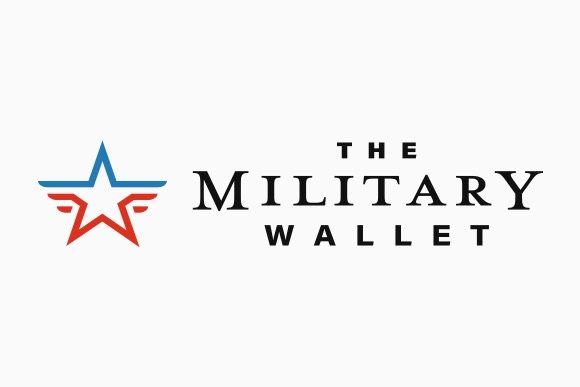Military members have access to one of the best home-buying programs around — the VA loan.
A VA loan is a mortgage provided by a private lender, sponsored by the Department of Veterans Affairs.
VA loans make it easier for military members and veterans to qualify for a home loan through a unique arrangement in which the VA guarantees a portion.
This allows lenders to provide VA loans at competitive rates.
Some of the significant VA loan benefits include:
- No down payment requirement
- No private mortgage insurance (PMI) requirement, even when making a down payment of less than 20%, or when having less than 20% equity
- VA Streamline Refinancing, also known as the IRRRL, or Interest Rate Reduction Refinance Loan
The IRRRL allows VA loan holders to refinance their home loans with substantially less paperwork.
With that said, buying a house is a significant undertaking.
Regardless of the type of loan, a prospective homeowner should research their purchase, ensure it works within their long-term budget, understand the loan terms and shop around for the best interest rates before purchasing their home.
With VA loans, here are three considerations:
You Can Finance up to 100% of a VA Loan (But Should You?)

Most lenders require homebuyers to make a 20% down payment when they purchase a home using a conventional mortgage.
Buyers who make a lower down payment are usually required to buy Private Mortgage Insurance (PMI) to protect the lender in the event the buyer defaults on the loan. PMI is not required with a VA loan, because the VA guarantees a portion of the loan if the buyer defaults.
But just because you can buy a home with no down payment doesn’t mean you should.
There are some advantages to making a down payment when buying your home. One such argument is the benefit of having “skin in the game.”
For example, a couple buying a $250,000 home would be much less likely to default on a mortgage if they paid a $50,000 down payment, than a couple buying a similar home with zero down payment, since the first couple made a considerable investment.
While there are studies that support both sides of this argument, we can at least assume that a home buyer who was able to save $50,000 in the first place may be in a better overall financial position than someone who is looking to finance 100% of their mortgage.
In many cases, it will be more prudent to save money for a down payment instead of trying to finance 100% of the home loan.
This becomes more important if you have big career or personal life events coming in the next few years, such as a planned PCS or retirement.
When you’re considering a home purchase within five years of retirement, you need to seriously consider if that is the home you’ll retire in. If you think you’ll move after retirement or separation, you need to think twice about committing to a home purchase in the first place.
The amount you finance becomes even more critical as you get closer to the VA loan limits, if applicable. You don’t want to finance more than you can afford to pay off.
Finally, making a large down payment reduces the cost of your monthly mortgage payment, which gives you additional financial flexibility.
How Does the VA Loan Rate Compare to Conventional Loans?
While many veterans automatically assume VA loans are the best, you should compare the numbers before choosing a VA loan.
There are a few considerations to examine, including:
- VA loan funding fees
- Interest rates
- Closing costs
- Other costs
VA Loan Funding Fee
The VA loan funding fee can range from 0.5% of the mortgage for an IRRRL to 3.3% for a 0%-down purchase of a subsequent (not first-time homeowner) purchase.
You can choose to pay this fee in cash at closing, or you can roll the funding fee into the cost of your home (most do the latter, but you can do it either way).
Whichever you choose to do, you need to account for it when comparing the overall cost of your home loan.
However, there are several exceptions to the VA’s funding fee policy, where this fee does not apply.
- If you are a veteran receiving disability benefits (or would otherwise be eligible for benefits except that you are retired or still on active duty)
- If you are a surviving spouse of a veteran who died in service or from a service-related disability
Interest Rate Differences
VA loans have different interest rates than conventional mortgages.
This may or may not be a significant difference.
However, you should run the numbers (down payment, closing costs, funding fees, mortgage, principal and mortgage interest) for a VA and conventional mortgage, then make your decision.
VA loan interest rates are always competitive with conventional mortgage rates and are often lower.
However, sometimes rates may be higher, depending on prevailing interest rates and other factors.
Go with the lower interest rate for your mortgage, unless you don’t have a large enough down payment to avoid PMI for a traditional mortgage and the PMI would increase your carrying costs above those of a VA loan.
Remember, a higher interest rate can cost you thousands.
Other Considerations
Don’t forget to account for origination fees, closing costs and additional costs that can be included in a VA mortgage. You won’t, however, have to pay mortgage insurance with a VA loan.
Take the time to do the math and determine for yourself whether the VA loan is better for you in the long run.
You Can Have More Than One VA Loan
Military members tend to move frequently. As a result, you may find yourself in a position of being able to buy another property at a reasonable price.
If so, then consider a second loan as an option for your next home.
If you are transitioning and have an existing mortgage, you want to think about your options.
If you choose to refinance your current home mortgage, your Certificate of Eligibility will reset to your new mortgage amount.
This will likely free up additional entitlement on your new loan unless you do a cash-out refinance (this is a different refinancing process).
These are only three considerations regarding a VA loan. Buying a home can be a complicated process with many variables.




About the comments on this site:
These responses are not provided or commissioned by the bank advertiser. Responses have not been reviewed, approved or otherwise endorsed by the bank advertiser. It is not the bank advertiser’s responsibility to ensure all posts and/or questions are answered.